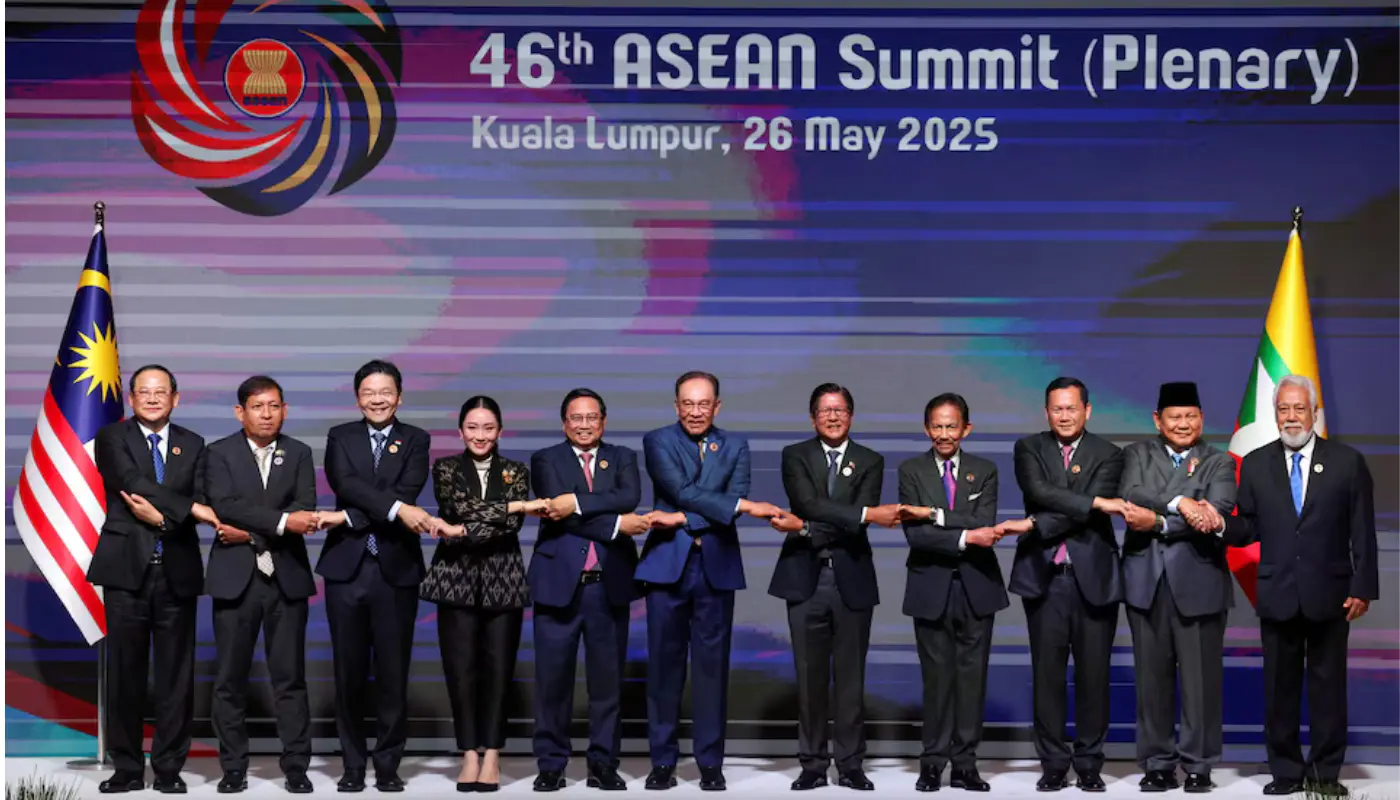KUALA LUMPUR — Malaysian Prime Minister Anwar Ibrahim has praised what he described as “significant engagement” in the ongoing efforts to address Myanmar’s political crisis, as Southeast Asian leaders gathered in Kuala Lumpur for a high-level ASEAN summit.
Speaking at the close of the 46th ASEAN Summit, Anwar emphasized that Malaysia has made diplomatic progress in facilitating communication between Myanmar’s military leadership and opposition stakeholders, including representatives of the National Unity Government (NUG).
“For the first time in months, we are seeing a genuine willingness from all sides to come to the table,” Anwar told reporters. “This marks a significant shift and a much-needed step toward a peaceful resolution.”
Quiet Diplomacy in Focus
Malaysia, this year’s ASEAN chair, has been pursuing a strategy of quiet diplomacy. According to Malaysian officials, this has involved confidential discussions with both the junta and opposition forces, aimed at reopening political space for dialogue.
ASEAN member states, long criticized for their limited influence over Myanmar’s military rulers since the 2021 coup, have struggled to enforce the bloc’s Five-Point Consensus on peace. Anwar’s administration, however, has sought to reinvigorate these efforts by engaging both sides while maintaining ASEAN’s policy of non-interference.
Malaysia has proposed appointing a permanent ASEAN special envoy to Myanmar—a move aimed at creating sustained dialogue rather than intermittent intervention.
Balancing Engagement and Accountability
Despite Malaysia’s optimism, the approach has sparked some criticism. Human rights groups and regional lawmakers have voiced concerns over direct meetings with Myanmar’s junta leadership, warning that such engagements could risk legitimizing a regime accused of widespread abuses, including attacks on civilians and political repression.
Anwar acknowledged the criticism but argued that open channels of communication are crucial for progress.
“Engagement does not mean endorsement,” he clarified. “But disengagement only worsens the suffering of the people of Myanmar.”
Regional Support and Broader Agenda
Other ASEAN leaders have offered cautious support for Malaysia’s initiative. Former Thai Prime Minister Thaksin Shinawatra publicly commended Malaysia’s leadership, calling it a “balanced and constructive approach” to a complex crisis.
Alongside the Myanmar issue, the summit also focused on economic resilience, with Anwar urging Southeast Asian nations to respond collectively to mounting global trade pressures. Discussions included U.S. tariff threats and growing uncertainty in the South China Sea.
“ASEAN cannot afford to be reactive. We must speak as one bloc, especially in dealing with major powers,” Anwar stated.
Looking Ahead
As Malaysia’s chairmanship of ASEAN continues, Anwar’s diplomatic strategy will be closely watched. Analysts say the success of Malaysia’s outreach could determine whether the regional bloc remains relevant in resolving one of its most pressing political crises.
For now, Malaysia’s efforts have brought Myanmar back into ASEAN’s diplomatic discourse—an outcome many see as progress after years of gridlock.
Photo Credit: Reuters




